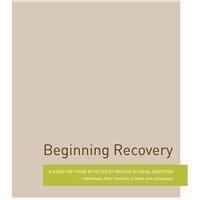
London: An influential group of MPs is calling on the Government to stop the dangerous over-prescribing of antipsychotic drugs to people with dementia. Up to 105,000 people with dementia are given the drugs inappropriately, according to expert predictions in the new All-Party Parliamentary Group (APPG) on Dementia report, A Last Resort, published today.
Antipsychotics continue to be a first resort for dealing with challenging behaviour in people with dementia, such as aggression or agitation, despite causing devastating side effects, doubling risk of death and costing the UK over £60 million a year.
A Last Resort identifies 5 vital steps to reduce antipsychotic use and reveals there is currently no audit or regulation of the issue. It urges the Government to use its new National Dementia Strategy to address the problem and the National Institute for Health and Clinical Excellence to conduct a thorough review.
Jeremy Wright, Chairman of the APPG on Dementia, says:
A Last Resort shines a light on one of the darkest areas of dementia care. Antipsychotics can double risk of death and triple risk of stroke in people with dementia, heavily sedate them and accelerate cognitive decline.
The Government must end this needless abuse and make the 5 point plan a key element of the National Dementia Strategy. Best practice guidelines are not enough – safeguards must be put in place to ensure antipsychotics are always a last resort. We need to include families in decisions, give people with dementia regular reviews and equip care staff with specialist training.
Neil Hunt, Chief Executive of the Alzheimers Society, says
It is absolutely disgraceful that widespread the abuse of people with dementia has been allowed to continue despite safety warnings on antipsychotics. Urgent action is needed.
Safe, effective alternatives to antipsychotics are available. New Alzheimers Society research shows specialist dementia training vastly increases quality of life and could save the UK £35 million a year if it was mandatory.
Over 70% of people with dementia experience challenging behavior at some point during illness. More often than not this is an expression of unmet need, not a symptom of dementia, and there is no excuse for reaching for the medicine cabinet.
Lynn Ramsey, whose husband David was prescribed antipsychotics, says
My husband David was given antipsychotics without my knowledge. He was unable to make the decision himself because of his dementia. At first it was extremely painful for him and the drugs impacted on his ability to eat and dress. Davids chin became slumped onto his chest and he could only look at the floor for the rest of his life. He died aged 63. These drugs have a major adverse affect on peoples lives, both patients and families.
The 5-point plan recommended in the report:
1. Specialist dementia training for all care staff
2. Families must be involved in all decisions around antipsychotics.
3. More pro-active support for care home staff from GPs, community psychiatric nurses and psychiatrists.
4. Compulsory medical reviews of people with dementia every 12 weeks
5. A cost effectiveness review by The National Institute of Health and Clinical Excellence and a national audit by the Care Quality Commission
References
Up to 150,000 people with dementia in the UK in care facilities are prescribed antipsychotics according to best estimates. (Prof C Ballard, APPG inquiry oral evidence). Experts in Old Age Psychiatry predict 70% of prescriptions are inappropriate, therefore up to 105,000 people with dementia are inappropriately prescribed antipsychotic drugs (A Last Resort).
Alzheimers Society funded research estimates antipsychotics cost the UK £60, 792, 263 per annum and specialist dementia training would save the UK £35 million a year if it was mandatory.
Antipsychotics can treble risk of stroke in people with dementia (Committee on Standards for Medicine, 2004), and double a persons risk of mortality (FDA 2005).
Alzheimers Society research published in the BMJ found that specialist dementia training reduces disruptive behaviour and the use of antipsychotics by 50%.
More information
A Last Resort collates evidence from stakeholders, experts and people with personal experience, received as part of an All Party Parliamentary Group on Dementia investigation, including the Royal College of Nursing, Royal College of Psychiatrists, Alzheimers Society and the Commission for Social Care Inspection.
244,185 people (two thirds of care home residents) have a form of dementia.
If we live to over 65, 1 in 3 of us will end ourlives with a form of dementia
700,000 people in the UK have a form of dementia. In less than 20 years nearly a million people will be living with dementia and by 2051 there will be 1.7 million
For support or advice contact Alzheimers Society Dementia Helpline number is 0845 300 0336 or visit

